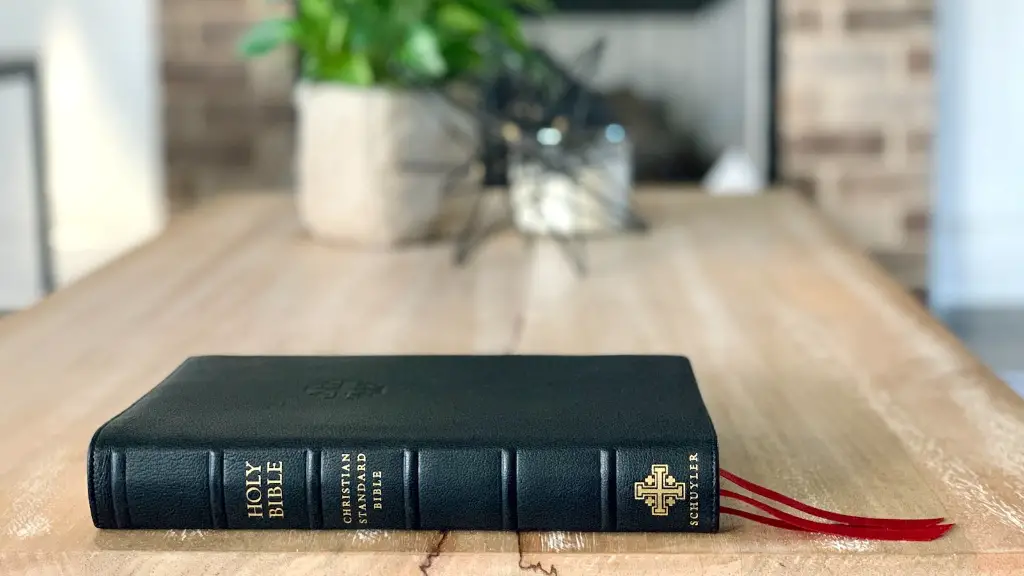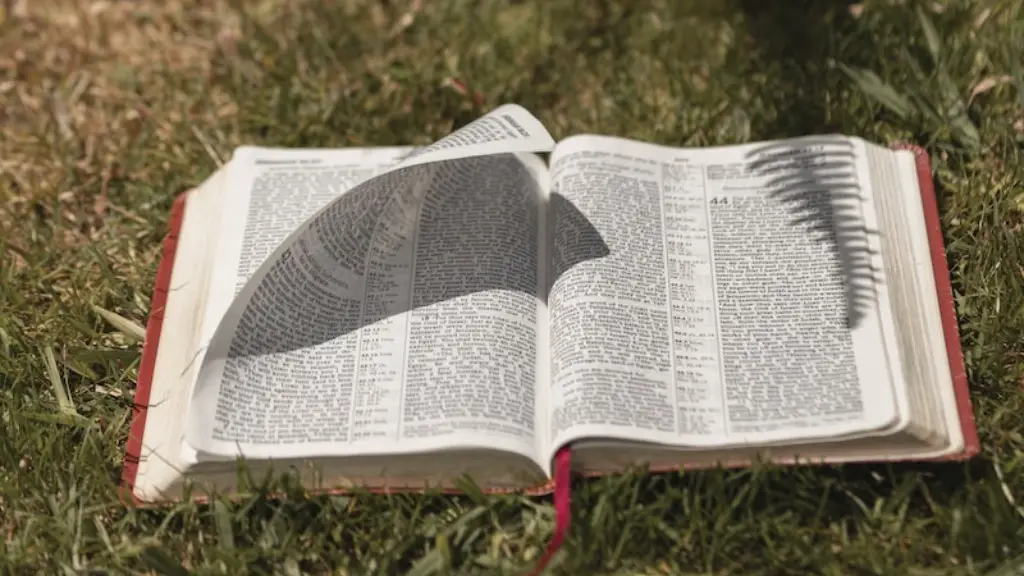Moses was an integral part of the Bible and one of the most revered leaders in all of scripture. He was the leader, prophet, and teacher of the Israelites, who led them out of slavery to freedom in the Promised Land, and is often seen as a great leader in world religions. The question, then, is how did Moses die in the Bible?
The Bible states that Moses died while on Mount Nebo, in what is now modern-day Jordan. According to Deuteronomy 34, the Lord met with Moses on Mount Nebo and showed him the Promised Land, and told him to go no further. At that point, Moses’ life came to an end at the age of 120. His death is described in Deuteronomy 34:5, which reads as follows: “So Moses, the servant of the Lord, died there in the land of Moab, according to the word of the Lord.”
Some experts believe that it was a peaceful death and that Moses simply passed away where he had been standing. Others have speculated that he may have been struck down by a plague of some kind because there was no description of a cause of death. However, it is important to note that the Bible does not offer a definitive answer as to what caused Moses’ death, and the exact cause may never be known for certain.
The most accepted opinion is that Moses’ death was the result of a life filled with service to God, service to the Israelites, and a life in which his physical and spiritual strength had been drained over time. It is believed that God himself chose Moses to lead his people out of slavery and invited Moses to climb Mount Nebo, as a way of thanking him for his service. The end of Moses’ life, therefore, is seen by many as an acknowledgment of the hard work and dedication he had shown throughout his entire life.
The legacy that Moses left behind is one of peace, love and justice that still resonates today. His teachings and legacy, in many ways, stand out as a beacon of faith and hope that have been adopted by many religions and cultures throughout time. He is remembered as a leader who struggled against adversity and champion of righteousness.
The Power of Prayer
The way in which Moses died is often seen as an example of the power of prayer. The Bible teaches that Moses prayed fervenstly to God, and was able to achieve incredible things, from liberating the Israelites from slavery to leading them to the Promised Land. Moreover, his death is often seen as evidence that prayer can be powerful, even in the face of death.
This stands in contrast to those who view death as an inevitability, or something that is out of our hands and over which we can do nothing. By praying to God on Mount Nebo, Moses demonstrated that prayer has the power to influence outcomes, even in the face of death.
This powerful message of prayer is perhaps what has made Moses such an influential figure throughout the centuries. His story is at once an example of faith, courage, and determination, while also reminding us of the power of hope and the power of prayer.
The Significance of Mount Nebo
Mount Nebo has long held special significance in the Bible, as it was the site of Moses’ death, but also of his eyeglass. By making his way to this peak and standing in a place of great power and importance, Moses was able to be truly connected to the divine.
Standing on Mount Nebo gave Moses an opportunity to see the Promised Land that he had so longed for. In his final moments, he was given a chance to see the land for which he had risked his life, and for which he had led the Israelites for forty years.
For this reason, Mount Nebo has become a symbol of hope and peace to many people around the world. It is seen as a beacon of faith and a reminder of how prayer and faith can bring life out of darkness and death.
Mount Nebo itself is seen as a sacred site by people of many faiths, and is often visited by religious pilgrims and tourists. The significance of the site lies in its relationship to Moses and the reminder it offers of the power of faith and prayer.
The Legacy of Moses in the Bible
The Bible has much to say about Moses and his legacy. He is seen as a symbol of strength, courage, and perseverance, and is respected by people of all faiths. For example, in Christianity, he is seen as an example of faith and obedience, and is often cited as an example for Christian believers to follow.
In Judaism, the memory of Moses is often invoked during various holidays, particularly Pesach. He is seen as a symbol of great leadership and his legacy is still taught by Jews around the world.
Moses’ death in the Bible is seen as a metaphor for the human experience. It teaches us that, no matter how great our leaders or how righteous our causes, death is an integral part of life. We all live with the knowledge that death is inevitable, but we must strive towards something greater than ourselves. In this way, Moses’ death is seen as a reminder of the importance of living a good life and striving towards something higher.
The Impact of Moses’ Life and Legacy
The impact of Moses on the Bible and on people of all faiths, cannot be understated. He is seen as a model of faith, courage, and obedience, and is respected by people around the world. His life and legacy have inspired millions, and continue to be a source of hope and inspiration for many.
His teachings and his life story have transcended time and crossed cultures, enabling people of all creeds and backgrounds to take something away from his legacy. Thus, the legacy of Moses, and the story of his death in the Bible, have provided a source of understanding and hope for people of all walks of life.
Moses’ Impact on Modern Society
Although Moses’ death took place thousands of years ago, his legacy still lives on in modern society. He is seen as an example of a great leader, of courage and perseverance, and of faith and obedience. His teachings are often referenced as a way to bring about peace and justice, and his example of courage and respect for others is often held up as a standard for all to emulate.
Moses’ influence can be seen in political debates, in literature and popular culture, and in conversations about justice and morality. His legacy is an example of faith, courage, and perseverance that continues to guide and inspire people today.
Conclusion
Moses’ death in the Bible is one of the most powerful and inspiring stories in scripture. Through his life and death, Moses showed us the power of faith and prayer, the power of justice and hope, and the power of doing what is right in the face of great odds. His legacy has inspired people of all faiths and continues to be a source of hope and strength for many to this day.





